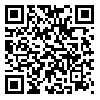Volume 13 -
IJMEHM 2020, 13 - : 552-563 |
Back to browse issues page
Download citation:
BibTeX | RIS | EndNote | Medlars | ProCite | Reference Manager | RefWorks
Send citation to:



BibTeX | RIS | EndNote | Medlars | ProCite | Reference Manager | RefWorks
Send citation to:
Hashemi E, Barkhordari-Sharifabad M, Salaree M M. Relationship between Ethical Leadership, Moral Distress and Turnover Intention from the Nurses’ Perspective. IJMEHM 2020; 13 :552-563
URL: http://ijme.tums.ac.ir/article-1-6325-en.html
URL: http://ijme.tums.ac.ir/article-1-6325-en.html
1- M.Sc. Student of Critical Care Nursing, Department of Nursing, School of Medical Sciences, Yazd Branch, Islamic Azad University, Yazd, Iran
2- Ph.D. in Nursing, Department of Nursing, School of Medical Sciences, Yazd Branch, Islamic Azad University, Yazd, Iran
3- Ph.D. in Nursing, Health research Center, Life Style Institute, Nursing Faculty, Baqiatallah University of Medical Sciences, Tehran, Iran
2- Ph.D. in Nursing, Department of Nursing, School of Medical Sciences, Yazd Branch, Islamic Azad University, Yazd, Iran
3- Ph.D. in Nursing, Health research Center, Life Style Institute, Nursing Faculty, Baqiatallah University of Medical Sciences, Tehran, Iran
Abstract: (2072 Views)
Turnover and moral distress are considered as one of the challenges in health care systems. Nursing leaders are one of the factors influencing the thoughts and behaviors of nurses in organizational environments. The aim of this study was to determine the relationship between ethical leadership, moral distress and the turnover intention of nurses working in hospitals affiliated to Kerman University of Medical Sciences in 2019-2020. The research method was descriptive-correlation. A total of 130 participants were enrolled by stratified sampling method from 3 hospitals. Data were collected using demographic information questionnaires, Ethical Leadership in Nursing, moral distress, and turnover intention. Then data were analyzed using descriptive and inferential statistics by SPSS software version 16. The results showed that ethical leadership and all its components were at the desired level. Also, moral distress and intention to leave were moderate. There was a significant negative correlation between ethical leadership and all its dimensions with the turnover intention and moral distress. Also, there was a significant positive correlation between the variables of turnover intention and the moral distress. Therefore, considering the significant relationship between ethical leadership, moral distress, and the turnover, by adopting this type of leadership approach by nursing managers, moral distress and the turnover intention among nurses can be reduced.
Type of Study: Research |
Received: 2020/11/2 | Accepted: 2021/02/14 | Published: 2020/03/20
Received: 2020/11/2 | Accepted: 2021/02/14 | Published: 2020/03/20
| Rights and permissions | |
 |
This work is licensed under a Creative Commons Attribution-NonCommercial 4.0 International License. |





